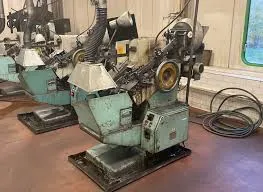
-
 Afrikaans
Afrikaans -
 Albanian
Albanian -
 Amharic
Amharic -
 Arabic
Arabic -
 Armenian
Armenian -
 Azerbaijani
Azerbaijani -
 Basque
Basque -
 Belarusian
Belarusian -
 Bengali
Bengali -
 Bosnian
Bosnian -
 Bulgarian
Bulgarian -
 Catalan
Catalan -
 Cebuano
Cebuano -
 Corsican
Corsican -
 Croatian
Croatian -
 Czech
Czech -
 Danish
Danish -
 Dutch
Dutch -
 English
English -
 Esperanto
Esperanto -
 Estonian
Estonian -
 Finnish
Finnish -
 French
French -
 Frisian
Frisian -
 Galician
Galician -
 Georgian
Georgian -
 German
German -
 Greek
Greek -
 Gujarati
Gujarati -
 Haitian Creole
Haitian Creole -
 hausa
hausa -
 hawaiian
hawaiian -
 Hebrew
Hebrew -
 Hindi
Hindi -
 Miao
Miao -
 Hungarian
Hungarian -
 Icelandic
Icelandic -
 igbo
igbo -
 Indonesian
Indonesian -
 irish
irish -
 Italian
Italian -
 Japanese
Japanese -
 Javanese
Javanese -
 Kannada
Kannada -
 kazakh
kazakh -
 Khmer
Khmer -
 Rwandese
Rwandese -
 Korean
Korean -
 Kurdish
Kurdish -
 Kyrgyz
Kyrgyz -
 Lao
Lao -
 Latin
Latin -
 Latvian
Latvian -
 Lithuanian
Lithuanian -
 Luxembourgish
Luxembourgish -
 Macedonian
Macedonian -
 Malgashi
Malgashi -
 Malay
Malay -
 Malayalam
Malayalam -
 Maltese
Maltese -
 Maori
Maori -
 Marathi
Marathi -
 Mongolian
Mongolian -
 Myanmar
Myanmar -
 Nepali
Nepali -
 Norwegian
Norwegian -
 Norwegian
Norwegian -
 Occitan
Occitan -
 Pashto
Pashto -
 Persian
Persian -
 Polish
Polish -
 Portuguese
Portuguese -
 Punjabi
Punjabi -
 Romanian
Romanian -
 Russian
Russian -
 Samoan
Samoan -
 Scottish Gaelic
Scottish Gaelic -
 Serbian
Serbian -
 Sesotho
Sesotho -
 Shona
Shona -
 Sindhi
Sindhi -
 Sinhala
Sinhala -
 Slovak
Slovak -
 Slovenian
Slovenian -
 Somali
Somali -
 Spanish
Spanish -
 Sundanese
Sundanese -
 Swahili
Swahili -
 Swedish
Swedish -
 Tagalog
Tagalog -
 Tajik
Tajik -
 Tamil
Tamil -
 Tatar
Tatar -
 Telugu
Telugu -
 Thai
Thai -
 Turkish
Turkish -
 Turkmen
Turkmen -
 Ukrainian
Ukrainian -
 Urdu
Urdu -
 Uighur
Uighur -
 Uzbek
Uzbek -
 Vietnamese
Vietnamese -
 Welsh
Welsh -
 Bantu
Bantu -
 Yiddish
Yiddish -
 Yoruba
Yoruba -
 Zulu
Zulu
Optimizing Your Production Process with Quality Thread Rolling Solutions from Leading Manufacturers
The Importance of Thread Rolling Manufacturers in Modern Industry
Thread rolling is a critical manufacturing process that involves creating threads on a variety of materials, primarily metals. This technique is widely utilized across numerous industrial sectors, including automotive, aerospace, and construction, owing to its ability to produce high-quality, precise, and durable threaded components. Thread rolling manufacturers play a pivotal role in this process, offering specialized services and products that meet the diverse needs of their clients.
What is Thread Rolling?
Thread rolling is a cold-forming process that uses rollers to shape the material by applying pressure rather than cutting it. This method not only enhances the strength of the threads but also improves their surface finish, making them less prone to wear and tear. The process involves the use of cylindrical rollers with the desired thread profile, which applies uniform pressure to the workpiece, deforming it into the desired shape.
Unlike traditional machining methods, thread rolling significantly reduces material waste, as it retains most of the original material's volume. This efficiency not only conserves resources but also lowers production costs, making it a preferred choice for large-scale manufacturing.
Advantages of Thread Rolling
1. Strength and Durability Thread rolling creates stronger threads compared to those produced by cutting methods. The deformation process aligns the grain structure of the material, leading to increased fatigue resistance and overall strength.
2. Cost-Effectiveness With reduced material waste and faster production times, thread rolling can be more economical than traditional machining. This cost-effectiveness is crucial for manufacturers looking to optimize their production processes while maintaining quality.
3. Enhanced Surface Finish The cold-working nature of thread rolling results in a smoother surface finish, which is vital for applications where friction and wear are concerns. This feature also improves the aesthetic quality of the finished products.
thread rolling manufacturer

4. Versatility Thread rolling can be used on a wide range of materials, including various metals and alloys. Manufacturers can produce different thread sizes and profiles, making it a highly versatile option for meeting specific client requirements.
The Role of Thread Rolling Manufacturers
Thread rolling manufacturers are equipped with the expertise and advanced machinery needed to perform this intricate process. They work closely with clients to design and manufacture custom components that fit specific applications. The ability to produce large volumes of high-quality threaded parts swiftly positions these manufacturers as invaluable partners in the supply chain.
Moreover, thread rolling manufacturers often implement stringent quality control measures to ensure that the final products meet industry standards and client specifications. This focus on quality not only enhances customer satisfaction but also helps in building long-term partnerships.
Innovations in Thread Rolling
As technology continues to evolve, thread rolling manufacturers are also adopting advanced machining technologies, such as computer numerical control (CNC) systems, to improve precision and efficiency. Automation in the rolling process enables manufacturers to deliver high-quality products at a faster rate, catering to the increasing demands of modern industries.
Additionally, advancements in material science have led to the development of new alloys and composites that further enhance the capabilities of thread rolling. With ongoing research and innovation, the future of thread rolling manufacturing looks promising, ensuring that it remains a cornerstone of industrial production.
Conclusion
In conclusion, thread rolling manufacturers play a vital role in enhancing the efficiency, quality, and cost-effectiveness of threaded component production. Their expertise not only contributes to stronger and more durable products but also enables industries to meet the ever-growing demands of modern manufacturing. As technology continues to advance, these manufacturers will remain at the forefront of delivering innovative solutions that drive industrial growth and sustainability.
